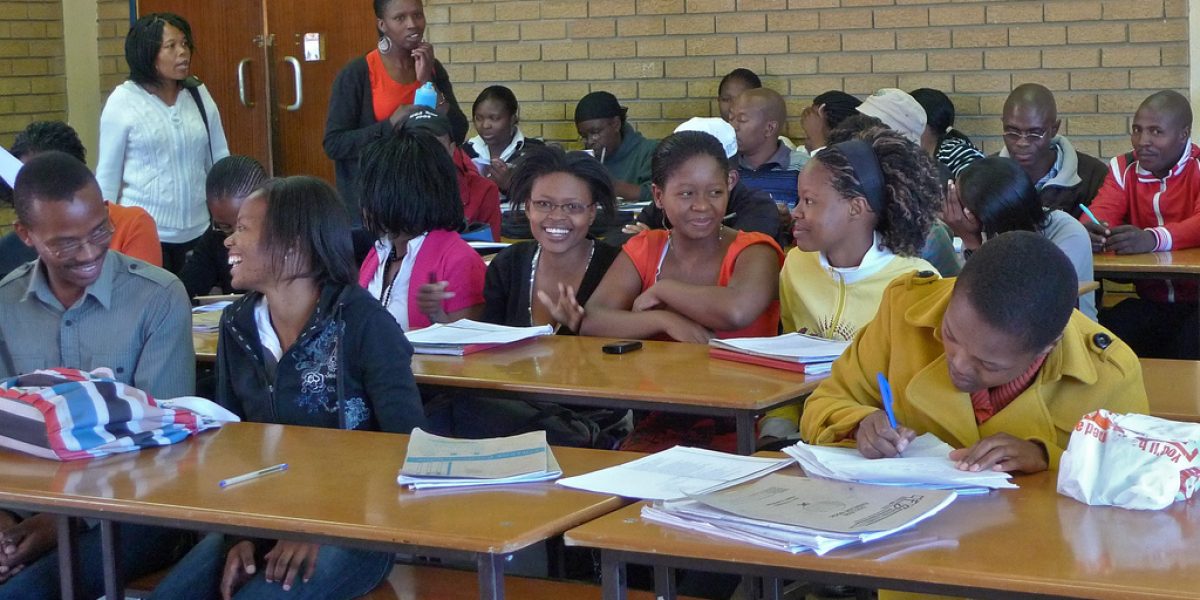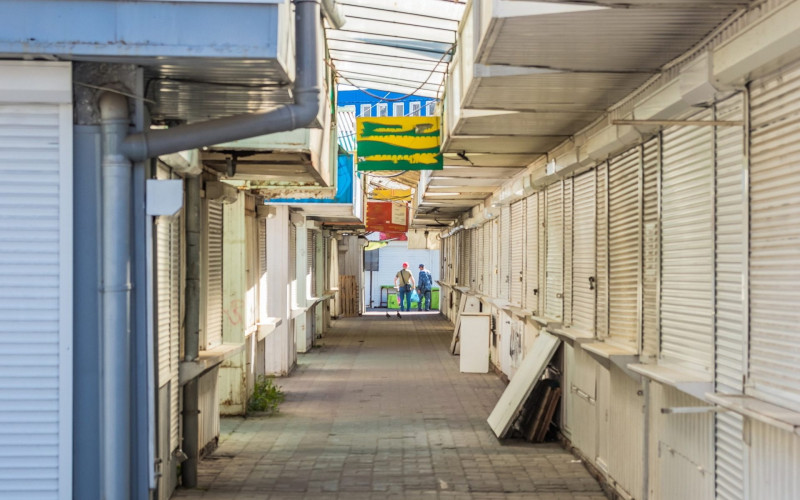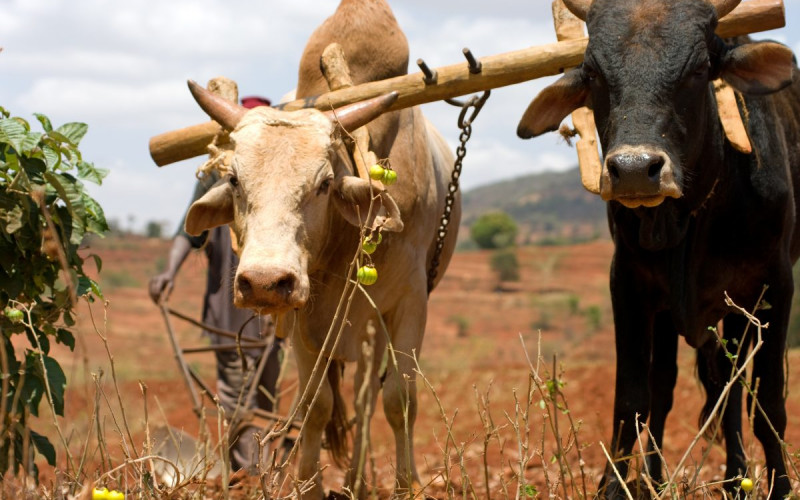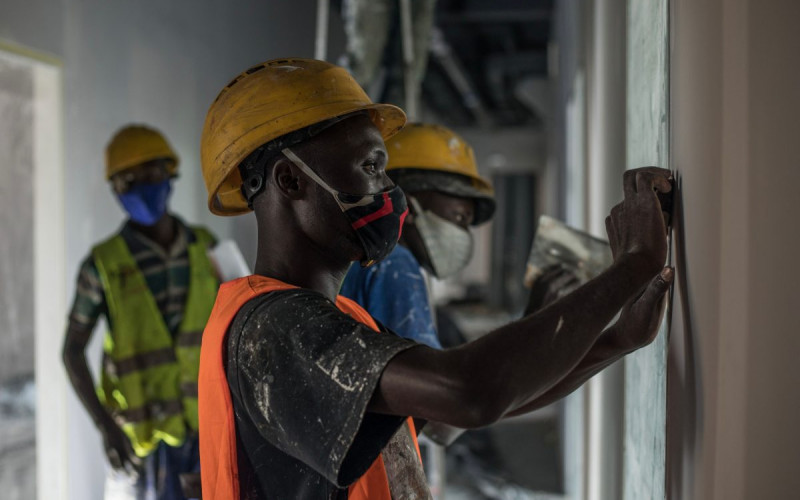Most Sub-Saharan African countries, on the other hand, have fewer than one in 10,000. Overall, the region has less than 0.5% of the global scientific community.
Only 4% of university graduates study science in Ethiopia, 1% in Namibia, 11% in Eritrea; 18% in Madagascar; and 8% in Mauritius, according to UNESCO.
That’s unlikely to change soon. A survey of 10 Sub-Saharan African countries conducted by the World Bank and released in June 2004 found that education in science, maths and technology across Africa is beset by a range of ‘huge challenges’, including: unqualified teachers; a lack of textbooks, computers and laboratory equipment; and large classes and irrelevant curricula.
Even in South Africa – the continent’s technology leader – pupils regularly fall at the bottom of reputable international studies. The Third International Mathematics and Science Study Repeat in 1998 measured student performance in 41 countries across the world. South African pupils received an average score of 275 out of 800, well below the international average of 487 and lower than such economic competitors as Indonesia, Philippines, Chile and Malaysia.
The consequences are easy to calculate. Africa lags far behind the rest of the world in development, technological innovation and economic competitive-ness. As technology is the key to driving development, the crisis in Africa’s maths and sciences classrooms will continue to check the continent’s progress.
‘There is no time to waste,’ said Prof. Fritz Hahne, the executive director at the African Institute for Mathematical Science in Cape Town, South Africa. ‘Governments must make changes now. Technology is moving at pace and Africa cannot afford to be left behind.’
Two trends complicate the problem. One, teacher training programmes at African universities tend to draw the poorest students – those who fail to make it into medical or business schools – the World Bank found. Only 15% of Namibia’s junior secondary and 50% of senior secondary science teachers are qualified. In South Africa, a separate study in six of the nine provinces showed that about 60% of the educators had not been trained in maths and science.
A Mix-up in the Classroom
Two, the push towards ‘education for all,’ embodied in global initiatives such as the UN Millennium Development Goals, which call for universal primary education, has, the report states, ‘resulted in a growing and heterogeneous student population at the secondary level, creating problems of mixed ability teaching.’ Many secondary schools cannot offer biology, chemistry and physics separately due to a shortage of science teachers, said Jacob Bregman, a World Bank education specialist.
‘The teaching force is largely inexperienced and teachers tend to have a limited understanding of SMICT [science, maths and information and communications technology] subjects,’ said Wout Ottevanger, co-author of the World Bank report, said in an interview.
Teachers also struggle with outdated curricula and a lack of resources to conduct classroom experiments. Otte-vanger notes that African maths and science curricula lack creativity, and teaching is by repetition rather than hands-on experiments.
Some countries have adopted piecemeal approaches to solve the problem. South Africa’s Gauteng provincial department of education converted trucks to mobile science laboratories that are driven to schools that lack their own facilities. Nigeria and Senegal have started specialised science secondary schools.
But a broader range of reforms is needed, the World Bank noted, including making curricula more relevant to national circumstances; more comprehensive teacher support programmes focused on maths, sciences and technology and higher teacher salaries; small class size, better classroom equipment and a sufficient supply of locally produced textbooks; public sector-private sector partnerships to boost funding for maths and science education.
Special incentives are also needed to stem Africa’s very serious brain drain. South Africa saw close to 17,000 skilled people leave the country between 1994 and 2001, according to the Human Sciences Research Council in Pretoria. Most of them were engineers, architects, executive and managerial personnel, those involved with natural sciences, the medical profession and education.
‘The brain drain has a damaging effect on a country’s economy and a reduction in a nation’s capacity to develop as a knowledge society and therefore compete effectively in the global economy,’ a study by the HSRC concluded.
The African Institute for Mathematical Science offers South Africa’s most promising maths and sciences students post-graduate training in subjects like molecular biology, astronomy, astro-physics, mathematics, geophysical fluid mechanics in an effort to keep them from seeking lucrative careers abroad.
‘Africa has few people with high-level skills in maths and science, and it is a serious problem because we are losing these people,’ Hahne says.








